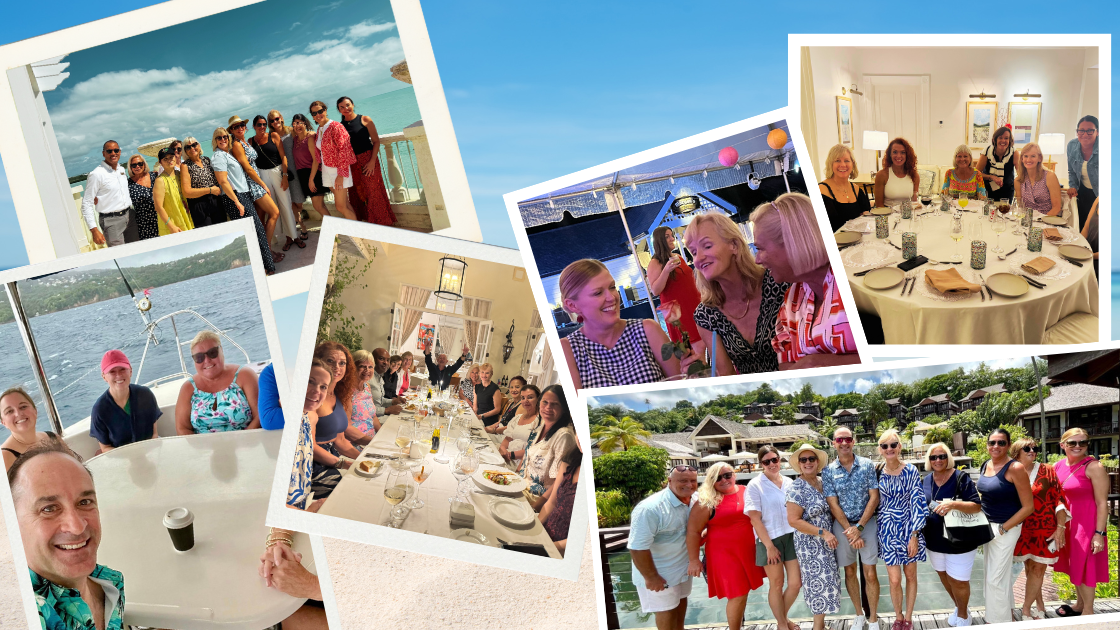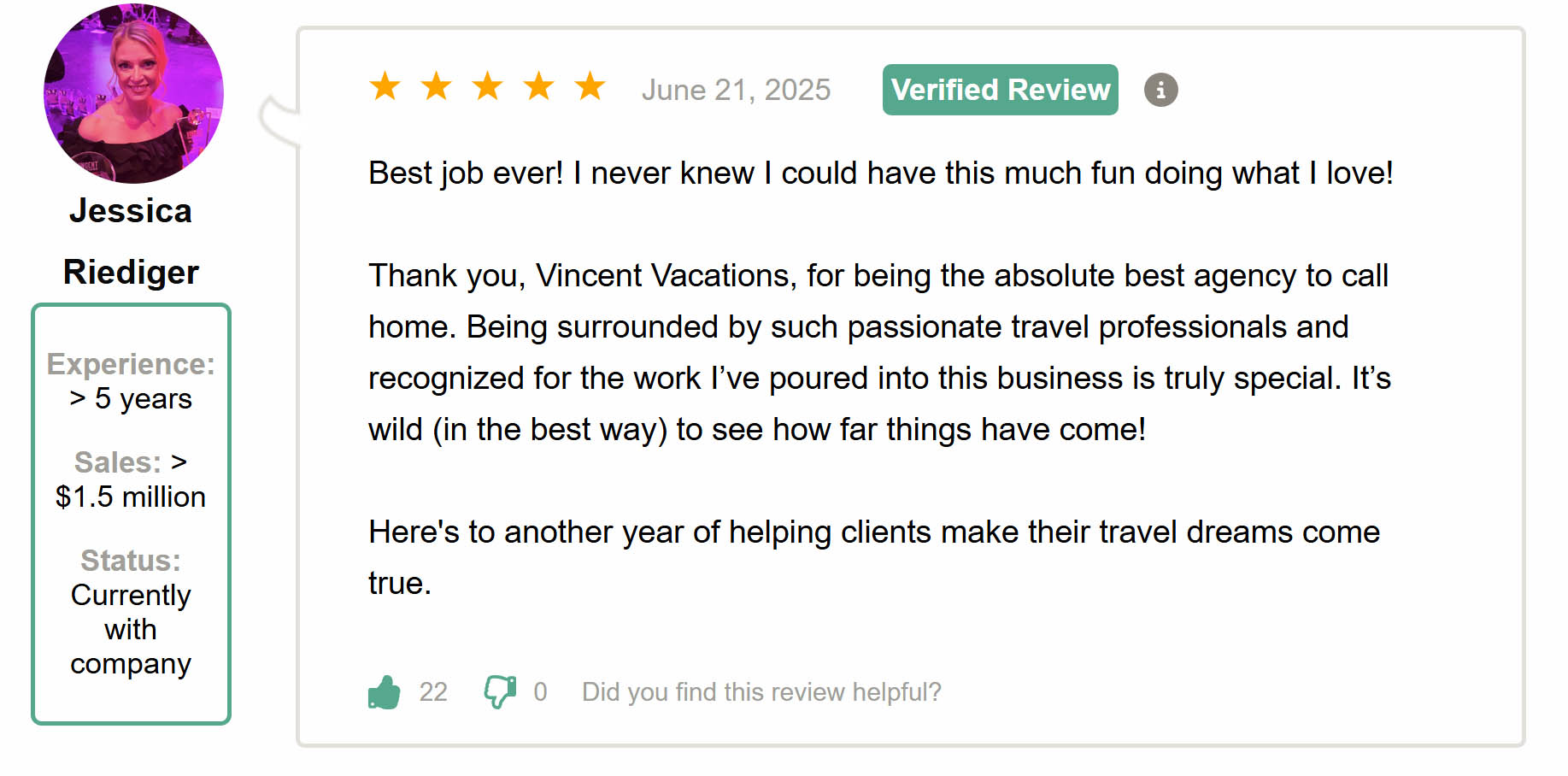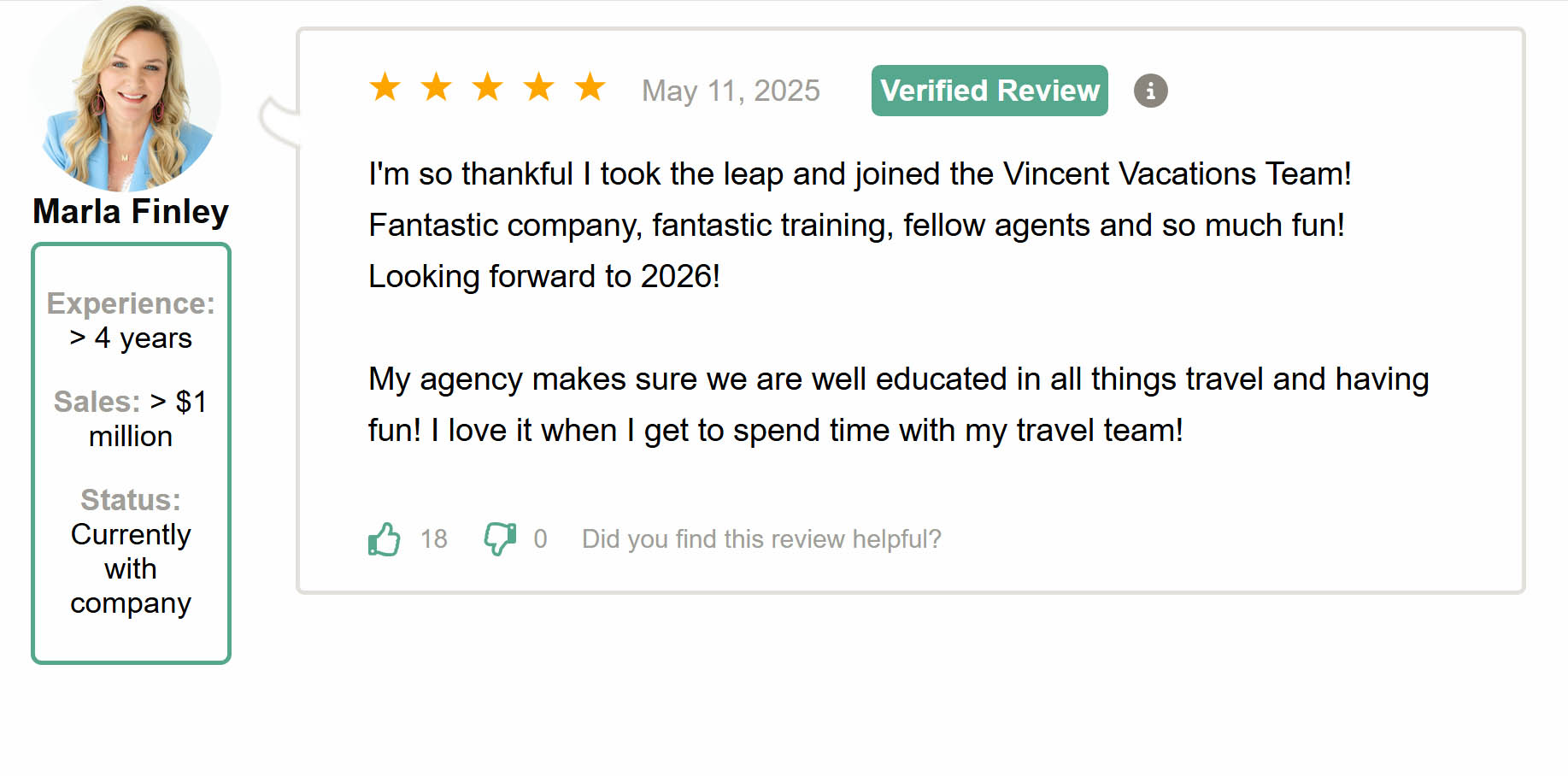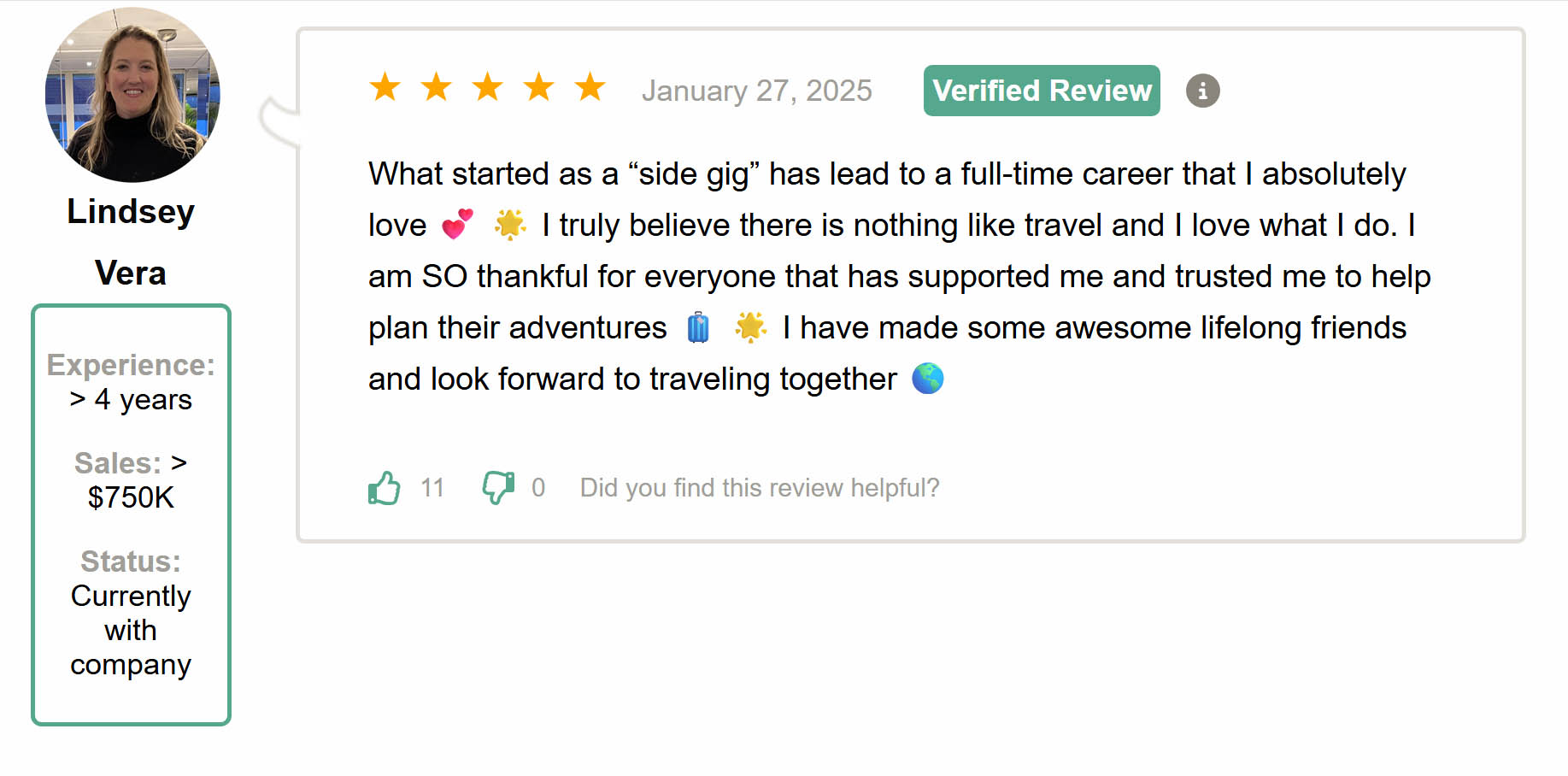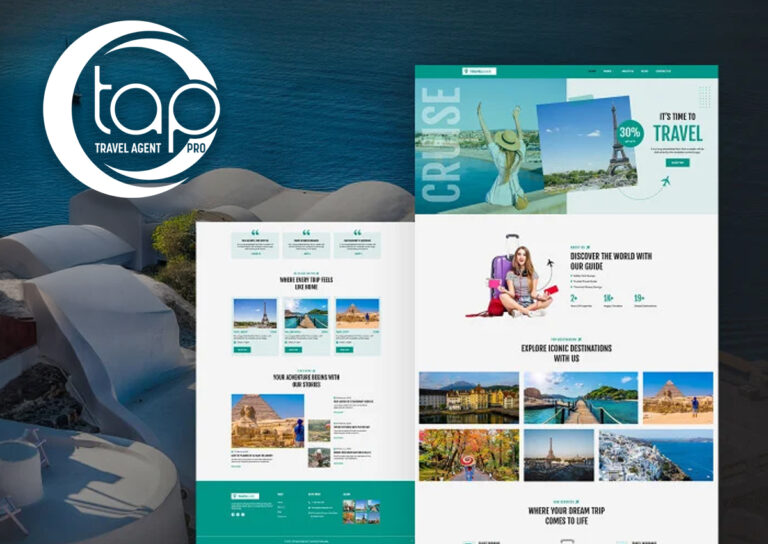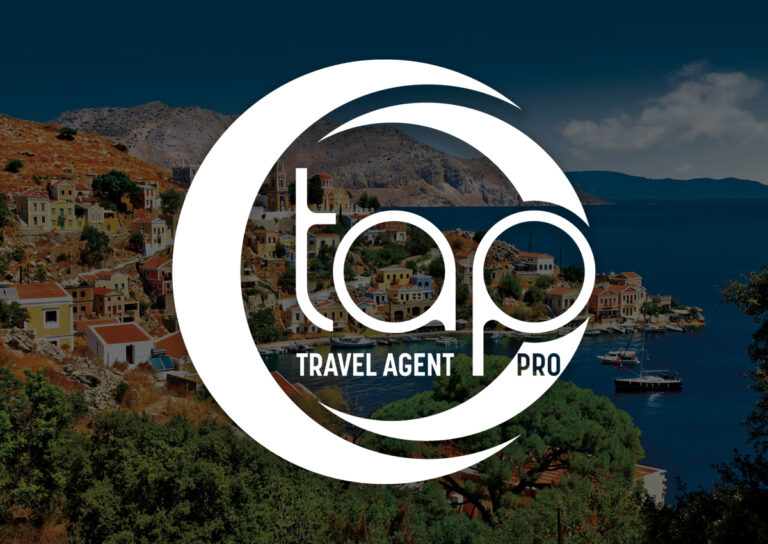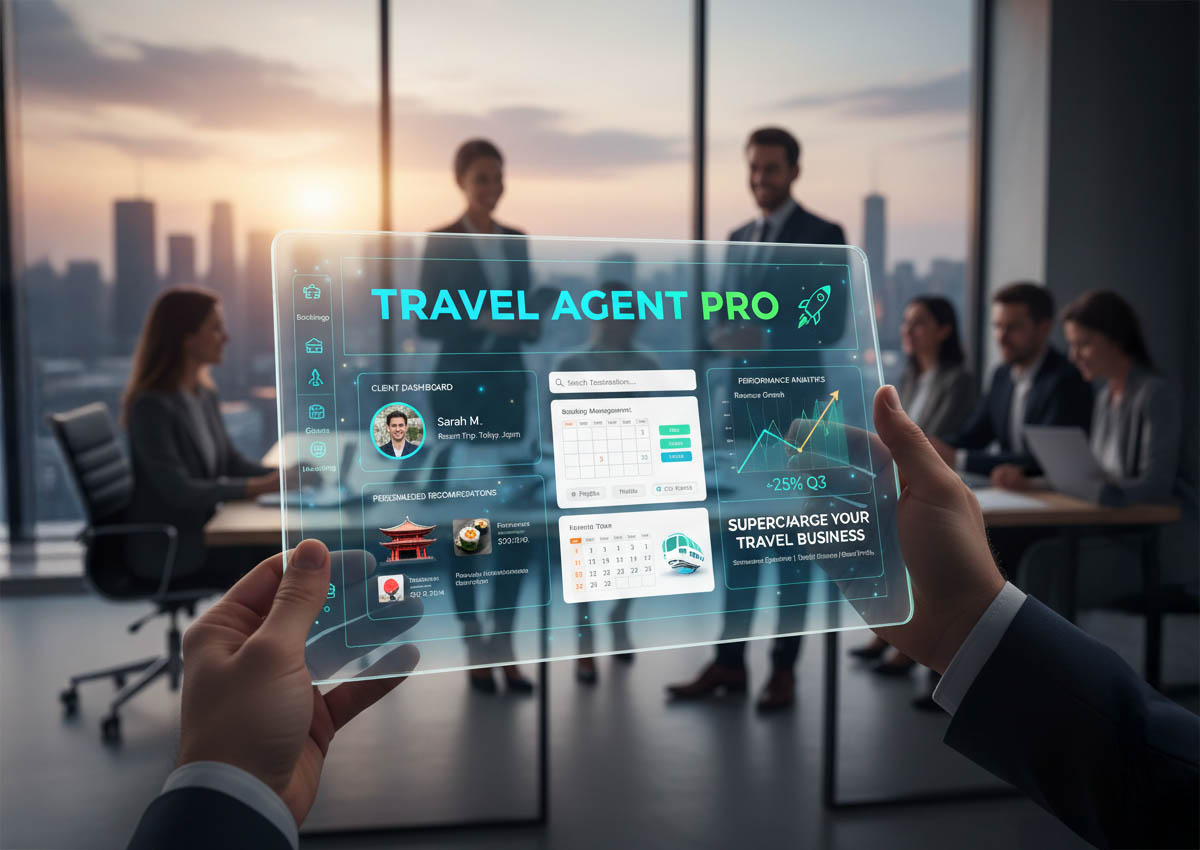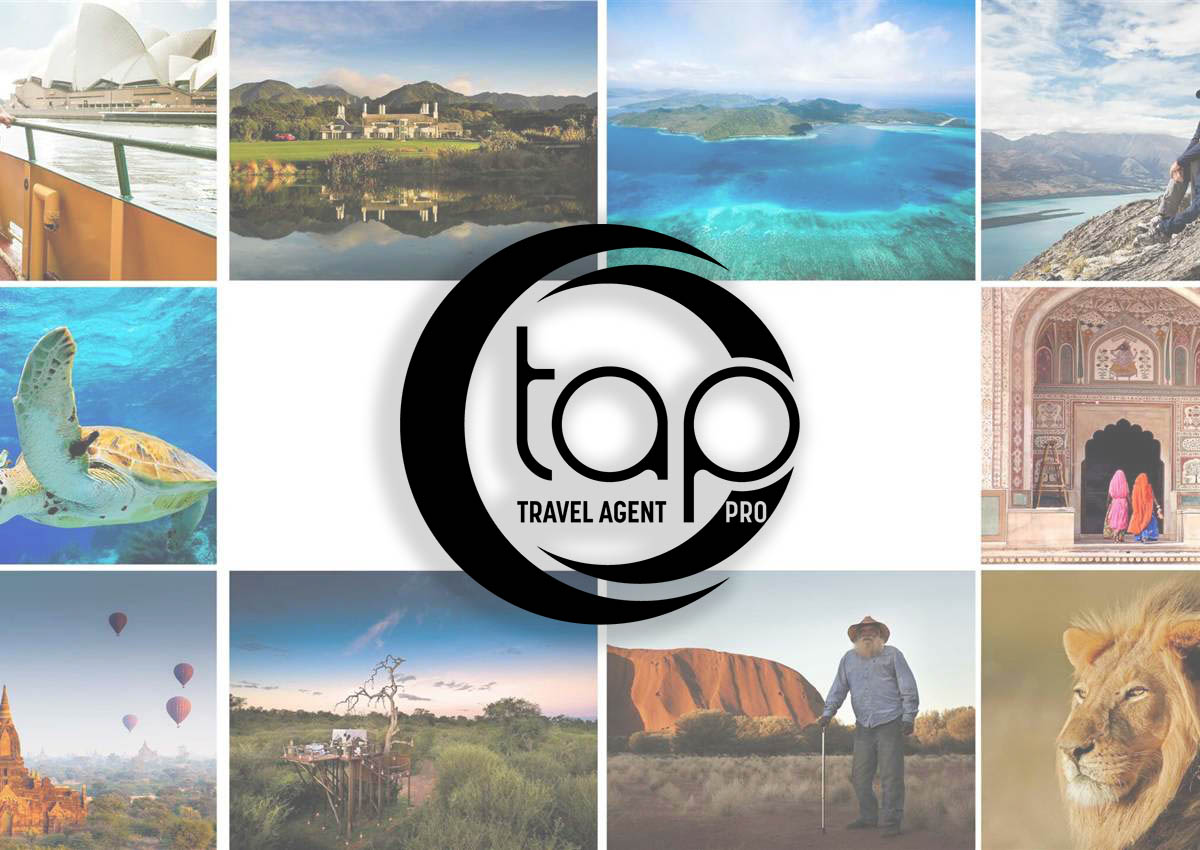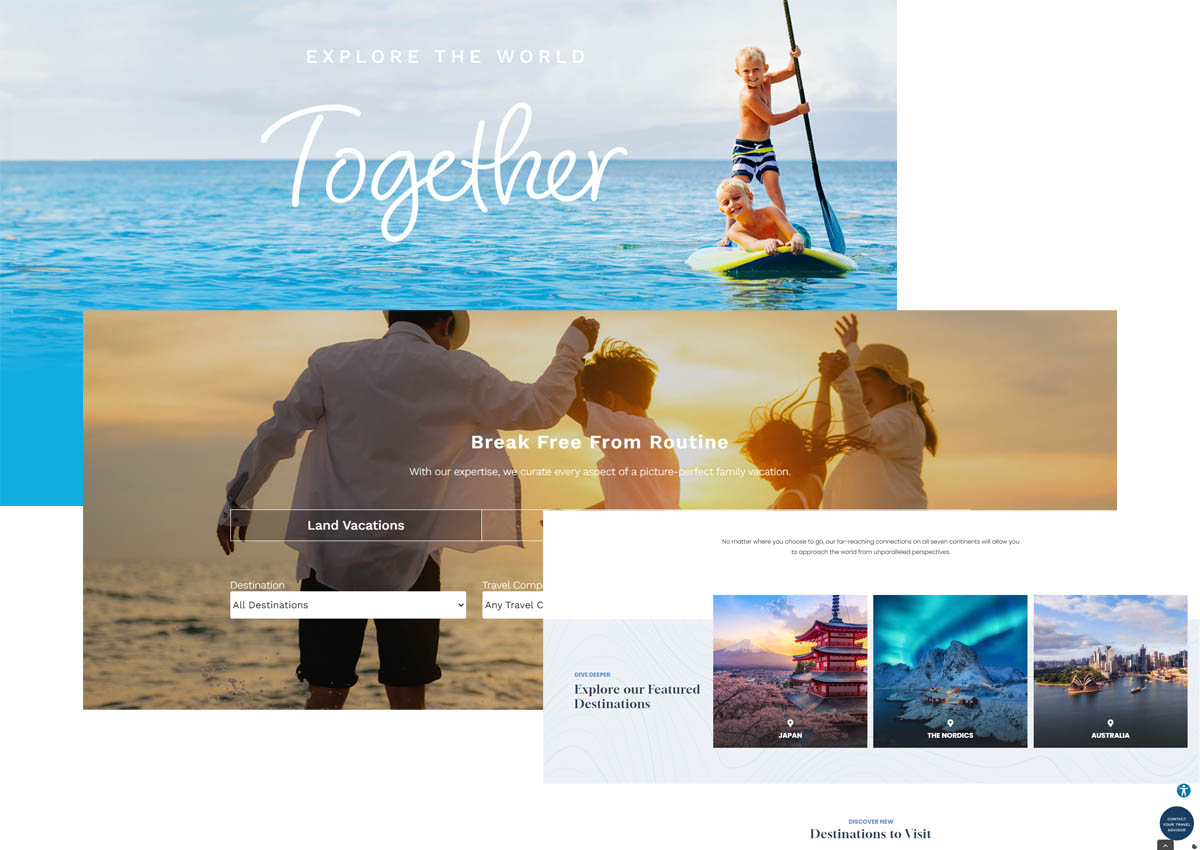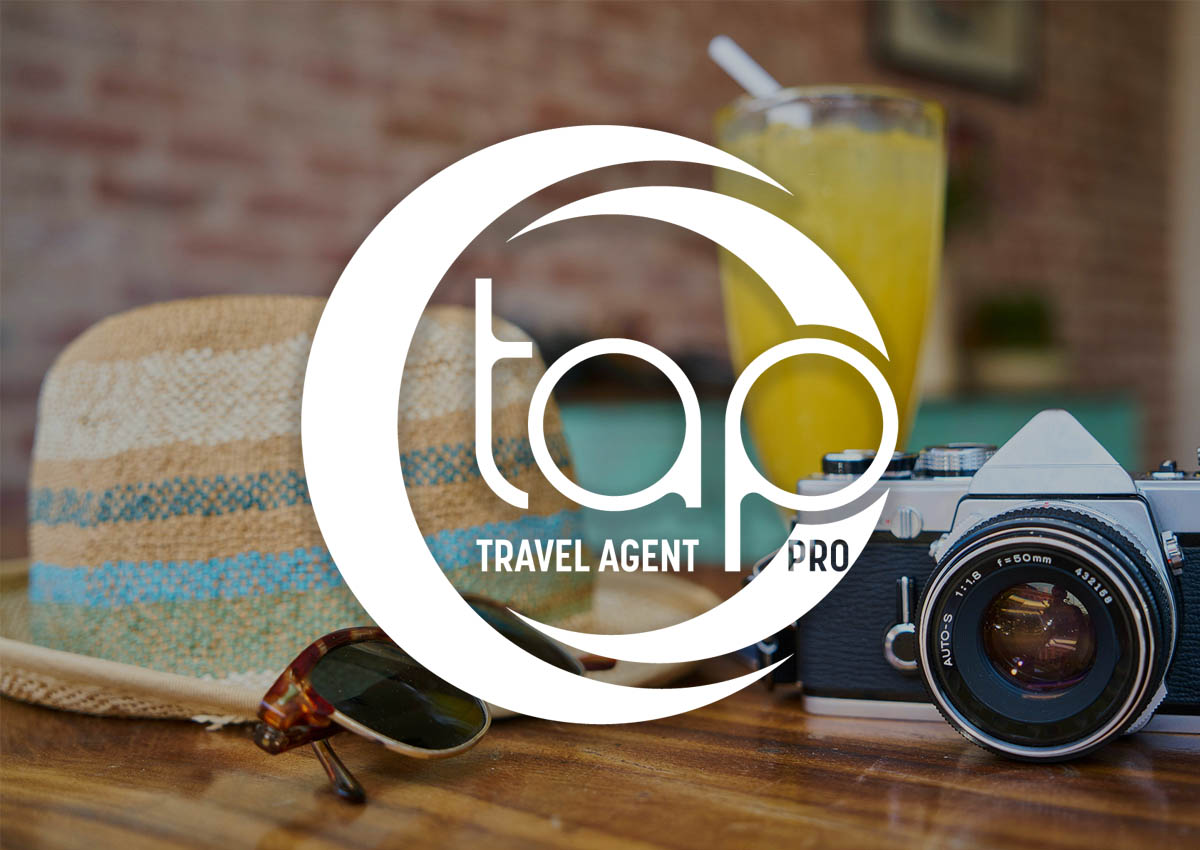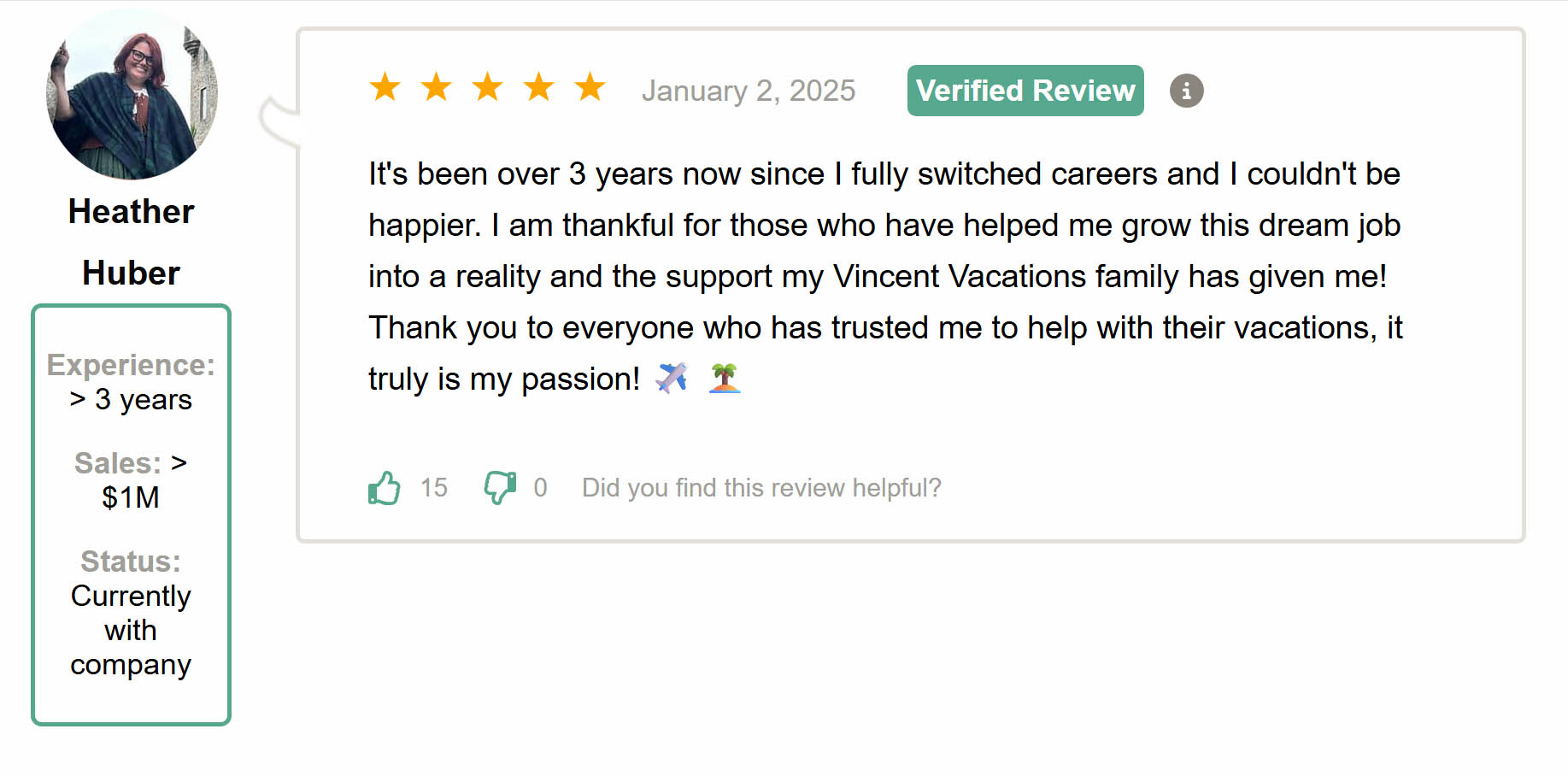Category :
Marketing & Social MediaCommunity Based Marketing
To learn more techniques and how to create and grow your own travel business, sign-up to become a member today!
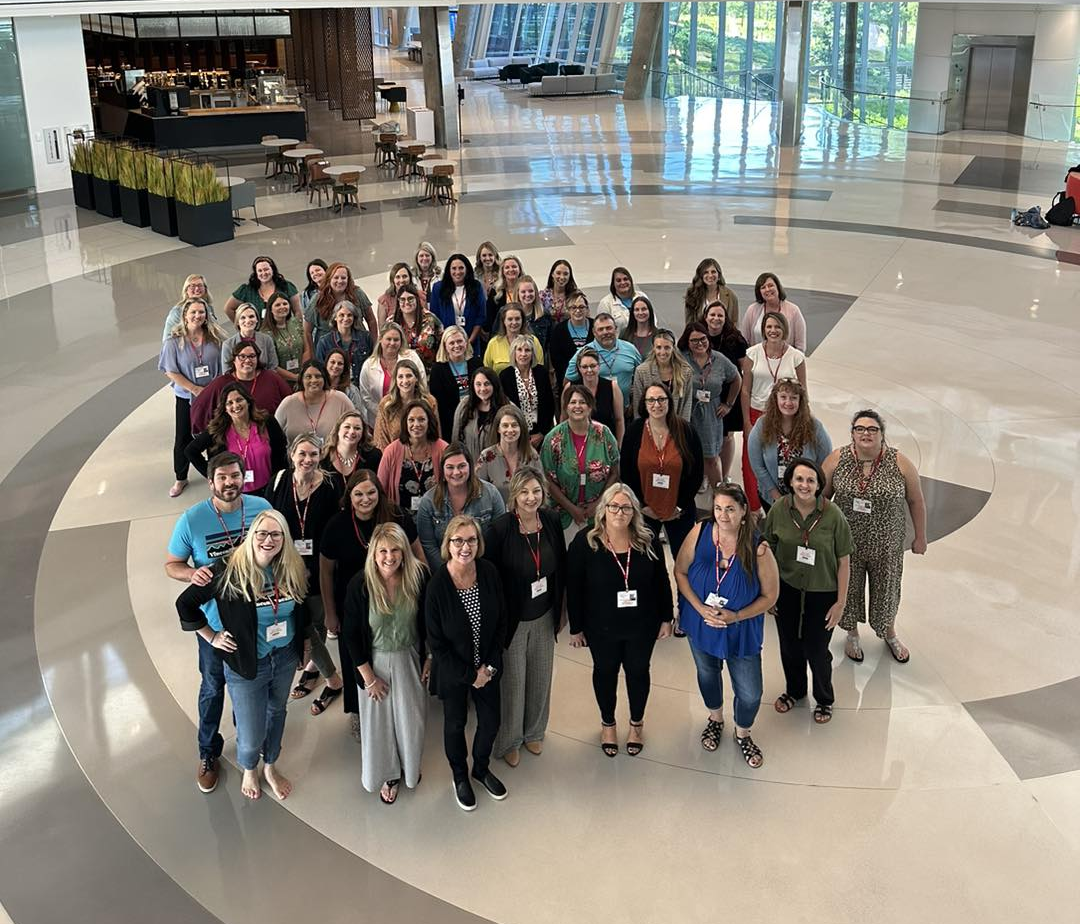
- Unlock the power of community-based marketing to build lasting relationships with your travel clients.
- Join Vincent Vacations and gain access to exclusive strategies and resources for community building.
- Elevate your travel business by fostering a loyal customer base through authentic community engagement.

The benefits of community and why it can be the best strategy for marketing your travel business
Traditional marketing just doesn't work like it used to.
An estimated 80% of startup companies today are leading with community as their marketing strategy.
Why is it so successful? The emotional impact does not compare with any other marketing channel.
The Importance Of Community For Your Travel Business
- Why Business Communities Fail
- Community-Based Marketing Strategy And The Emotional Continuum
- Community-Based Marketing: Define A Purpose For Your Community-Based Marketing
- Customer Moderators: The Critical Importance Of Status In Community-Based Marketing
- Community-Based Marketing: How To Cultivate And Grow A Community For Marketing
- How To Establish Standards And Expectations For Business-Based Community
- Community-Based Marketing: Community-Based Marketing: How To Co-Create With Your Community Members
Why are communities so important for your travel business?
Today's world is one of overwhelming information density. In a world of streaming content where marketing and advertising doesn't work like it used to. Branded content doesn't necessarily work like it used to. The competition is greater than ever. We need another solution to create that emotional connection to our customers. Web3, new, and existing technologies that are enabling amazing new ways to connect with customers.
People are longing to belong. They are looking for a place where the can fit in and experience authentic community around their interests. In the news you will see "The Loneliest Generation is Gen Z."
People are more alone, isolated and depressed than ever. They're longing to belong. They need community.
Using community as part of a marketing strategy is the most overlooked opportunity in the history of marketing opportunities. If you have had a travel business or are starting one, you have got a community associated with your business.
Young people starting businesses today are really reflecting and understanding the needs of society. And when the young people are starting businesses and leading with community, that says that's where we're going here, you know, what's interesting is this feels a little bit like the early days of social media because it was important.
Social media is still important, even though it doesn't have that in many places, at least it doesn't have that same community feel.
It still gives us that opportunity to connect with people we never could have met before. But normally, if you haven't met the "friend" in person, those social media connections are weak relational links.
We're posting content. We don't really know who sees it. We don't really know if it creates any action. And the next step really is content and an audience.
And this is a really powerful emotional connection.
Will the audience go away? The next step is community. You need to bring value to the members or the purpose for the community is not going to align with a customer's purpose for the community. And 70% of communities fail because of value, the members see themselves as a pinata where you want to pick their wallet apart.
Community-based marketing is increasingly recognized as a pivotal strategy for the future of travel businesses, especially for travel agents. This approach revolves around creating and nurturing a community of customers or followers who are deeply invested in what your brand offers. Let's delve into how this strategy is shaping the future of travel business:
- Changing Consumer Priorities and Values: Consumers today seek connection and community over mere transactions. Traditional marketing techniques are becoming less effective as people are inundated with ads and information. In this context, community-based marketing emerges as a compelling alternative, offering a sense of belonging and connection that people crave. Travel agents can leverage this to grow their brand and retain customers by creating exclusive communities that offer more than just travel bookings.
- Building Brand Loyalty and Commitment: One of the most significant benefits of a community-based approach is the enhancement of customer loyalty. When customers feel they are part of a community that offers exclusive treatment and perks, they are less likely to turn to competitors. This loyalty translates to repeat bookings and a reliable revenue stream. Moreover, community members often feel a strong personal connection to the brand, making them less inclined to switch to competitors.
- Trust and Brand Awareness: Trust is crucial in retaining customers, and building a community is an excellent way to foster this. Communities often provide customers with better access to feedback and support, enhancing their trust in the brand. Furthermore, a thriving community can independently spread brand awareness, as satisfied members are likely to share their positive experiences and bring in new customers.
- Enhanced Customer Experience: Providing a better customer experience is a key goal for travel agents, and communities offer a personalized way to achieve this. Members often receive more personalized advice and tailored services, leading to a more satisfying experience. In fact, a significant percentage of brand community members agree that being part of a community improves their experience as customers.
- Additional Communication and Research Opportunities: Building a community allows for more personalized communication with customers, whether through emails, forums, polls, or webinars. This not only builds a good brand image but also provides a platform for valuable research. Customer feedback gathered through the community can inform business strategies and enhance the brand's offerings.
- Techniques for Building Brand Communities: Personalization, effective communication, offering exclusive perks, subscription services, incentivizing repeat bookings, offering unique insights, and connecting customers are some of the techniques that can be employed to build a thriving brand community. These strategies not only attract customers but also foster a sense of belonging and loyalty.
- Leveraging Technology: Additionally, incorporating technologies like virtual reality (VR) and social media can further amplify community-based marketing efforts. VR can provide immersive previews of travel destinations, while social media platforms like Instagram are fertile grounds for building travel communities and partnerships with influencers.
In summary, community-based marketing represents a dynamic and empathetic approach for travel agents, focusing on building lasting relationships, enhancing customer loyalty, and creating a loyal customer base that not only repeatedly uses their services but also advocates for them. This strategy aligns with the evolving consumer preference for meaningful connections and experiences over transactional interactions.
They want to go to a community because it's something fun and brings them fulfillment. It's a destination for them. Every day. One of the biggest communities is Harley Davidson. And Harley Davidson has hundreds of thousands of people in this community called Hogg Harley Owners Group.
And they ride together their festivals and 700,000 of them go to Sturgis, South Dakota, every year. Now, the purpose of Harley Davidson, this is their stated community purpose to help people fulfill their dreams through the motorcycle lifestyle. It's not to sell more. It's not to make a quarterly profit. It's to fulfill their dreams.
Harley Davidson, we want to help you be a badass because it's all about leather and how powerful the sound of the motorcycle. Yeah. Everything they do from the top of the company to the bottom of the company, it is about that purpose. It's about the customers purpose. We want to be about us. We're going to help you do it.
Now they're selling transportation, just like your car dealership down the street. Can you imagine Harley Davidson saying it's a Presidents Day sale? We're going crazy. $2,000 off today. No. it would never do that. Even though they're in kind of the same business. Right? Whereas they have a community. When you have that community, you don't have to have crazy sales.
People are in this community because they believe in this purpose, because they believe in you. People will only buy Patagonia because they feel they belong to a community, because they believes in their mission, their purpose of responsible stewardship of the earth.
When you have that emotion, when you belong to the brand like that, your marketing is over. And that's why community is so powerful. Marketing as we traditionally think of it.
Selling more, it's not the main motive when building a community. You don't build a community and then just sell to them, or else everyone will leave.
The foundational purpose of marketing is to create this emotional connection between what you do and your fans, your customers, your audience. Now, you know, the example probably everybody can understand is like Coca-Cola. Coca-Cola is brown sugar water. But that's not what you think of when you think of Coca-Cola.
There's another emotion. It could be polar bears. It could be Santa Claus. It could be happiness. Now, how have they done that? They've spent millions and millions of dollars over decades on advertising, but that's gone away. We just don't see ads like we used to because of the streaming economy. We've got to create that emotion another way. Social media plays some part and content.
Having people subscribed to your content plays a bigger part. The biggest part of all is community, because that's where not only do people build a sustainable relationship with you, they build they. They build a relationship with each other. The friendships, the love, the support that happens in community, that emotion. The research shows that psychology extends to the brand.
It's extraordinary and so powerful. It almost suggests Mike, that when you create a brand community, the most important thing isn't the relationship with you. It's creating relationships with each with with creating new friendships. That's what's going to keep them there. And if they stay there, that adds a layer of switching costs for your brand. Because to leave your brand means leaving your community and leaving all those people.
It's really, it turns marketing, management and leadership sort of on its head about what the purpose of of what creates success in a community rather than the way we thought about things in the past. So Mark calls this concept the emotional continuum, right. Which is social media content and community. Yeah. Now, there are some people listening that are like me, I'm very analytical.
I'm I'm somewhat creative. I know how to write. I'm a good copywriter. And there are other people that have are more like some of the other people on my team, like Phil Mershon, my director of events, who were very relational, very emotionally focused about creating great experiences. It seems to me, Mark, that you kind of need a little bit of both, right?
You need people who are good at doing things, but you also need someone who understands that this person to person relational thing is something that's hard to measure but super valuable. Right? So you want to talk about that a little bit because depending on who's leading this charge, they may or may not be successful because this emotional side is hard for some people who are not emotional ground grappled with.
Right. Yeah. I'd like to talk about one of my favorite stories from the book. It's the first time, you know, I've I've written ten books. This is the first time I devoted an entire chapter to one person. And that person is a mutual friend of ours. Dan Small stuff. Dan is an entrepreneur in the in the San Diego area.
And she became pregnant and she was torn about, you know, do I devote all my energy to being an entrepreneur, to devote all my energy to be a mother? She said I want to do both. She didn't really have a good support group for that. So she created making. I'm making a long story short, in Los Moms, I think it's called Great advice, Mom.
All right. Dana now has 70,000 people in her group in her first eight months. She had a six figure income. Her business, I think she started around 2016 is it's about doubled every year. It's almost $1,000,000 business. Now, here's what will get your attention. She has no sales department. She has nobody working on sales. She has no marketing department.
She has no marketing budget. Here is her strategy, which which gets to your point around relations. She said, My primary goal is to create safety. It's about culture. It's that when people come there, they expect to be in a place where they're nurtured and they're safe. And if you do that, combined with a unifying purpose, you're going to create this community that will buy anything you have.
Dana does it. Dana was very careful to say in the book, I know how to sell. If I need to sell, I can do it. But she doesn't have to because if she comes out with a new video series, a coaching program, an event, people buy it right away, a new book. They buy it right away because they love her and they want to support her.
So it it's it's marketing without marketing. As we think about it. But it's the most powerful idea ever because it's the only kind of marketing people love. They want to be there every day. Why wouldn't we be thinking about that as a as an in the portfolio of any of our businesses? Okay. So getting to a starting point for those of us that want to build a community, let's talk about purpose.
I heard you say that a lot. And then, you know, how do we. Any guidance on how to come up with a good purpose? And then how do we get some of those early fans started into the community? Yeah, I've got one of the one whole chapter of the book talking about this idea of of purpose and really thinking about this intersection and about what your company stands for and what means something to your customers that would make them want to belong.
Some of the questions I ask in this chapter prompt you to think about what's your what's your North star? Why did you start the business and why is that relevant to people today? Another thing to think about is there's something you can do for the world or for your business that can be done better with the help of customers in a community than on on your own.
The people who work for you, what what do they stand for? Why do they work for you? Why do they love to be there? Is there something in common that your employees share that also could be a signal for why customers want to be part of what you're doing? So I've got, you know, probably 25 different ideas to help people think through What is that?
You know, what's that initial purpose? Now, what I've found in terms of like getting your first members, boy, you know, researching this book, I spent a lot of time studying communities, and I'd be interested to hear your take on this in your experience. Almost every community started with people who are already kind of there. So for you, you started publishing content and maybe it was people who were your early subscribers, early podcast listeners, maybe friends who supported what you were doing and were interested.
Almost every community just started with five or ten people that were kind of already there. The three shared are your your passion and your idea, and then it's just a matter of fanning the flames. Let's clarify this. Let's get together in a community and those early novels here. Let me share a little bit about what we did in the early days.
I'd love to hear it. Let's take, for example, social media marketing world. Right? Which we're coming up on our 10th anniversary and are going to be speaking there. We've always recruited volunteers, and in the beginning, the very first year, the volunteers were friends and family. But in the second year they were customers who had attended the prior year but couldn't afford to come back.
So we asked them to volunteer and then we built this culture of volunteers and people absolutely love, volunteer. And sometimes we would have hundreds of what we call white shirts, which were volunteers. Some of them were customers inside of our social media marketing society. Other ones were just those who have attended. And then we got to the point where it became kind of a big deal.
If you got chosen to be a volunteer, you know, and even in the very beginning when I started Social Media Examiner, I needed a director of editorial and Cindy King, who has passed away since, but she was in the community. She was a consumer of the content. She raised her hand and said, I'll do it for free. And then eventually I hired her full time.
Right. And I know, Mark, this is probably how it's worked for you as well, right? Like creating content to draw an audience to you. And what you have to do sometimes is say, Hey, I'm looking for some people to help out. Maybe it's modeled near this cord, right? Is that exactly it? Yeah. Yeah. In my community, it's just people who follow me on social media, who read my books, and now they're running the community, right?
We're doing experiments where, you know, we're we're actually, you know, my community is like we're writing a book together. People in the community, they're do they're writing, they're editing, They're doing the cover, They're doing the promotion. I'm just sort of, you know, kind of like helping. So for those that don't have a community with content, you can also do with customers.
absolutely. When we started the Social Media Marketing Society, everybody was paying to be in there and we asked some of our customers if they wanted to be moderators instead of our group, which was their job, was mostly just to answer questions and keep the dialog going. And we rewarded them with special perks and stuff like that. But they were actual customers who just wanted to have a slightly elevated exposure inside of this group, and they happily volunteered, well, you know, and I want to build on this comment because it's a very keen insight what you were doing with with perks, rewards, Right.
Mileage make it special to become a volunteer. What you're doing, Mike, is bestowing status. Okay. And this so you talked about strategy. We talked about purpose. One of the things I learned as I was researching this book is the critical importance of status. Status really drives the community. People want to show up every day in the hope of being acknowledged, in the hope of being present and making a new friend.
What I learned and, you know, I don't know. It'd be interesting to know if you've actually thought about this as part of your strategy. But for me, the two most important parts of nurturing a community is making sure it's just like Dana said, it's a safe culture. Number two, bestowing status and acknowledging people, rewarding people. That's what keeps the community going.
So, you know, you mentioned that sort of all. And, you know, you're out. I will tell you, we did employ a game theory in the very beginning where we launched the Social Media Marketing Society, where we were using a rewards plugin because back in the day we were building it inside of Bebe Price or something like that. I can remember what the technology was, but it it allowed you to earn points and there was a leaderboard.
So the points were earned by commenting on other people's stuff by making friend requests. And the more points you got, you would get up on the leaderboard and the leaderboard was literally right there on the website, you know, and people were active, super active because they wanted to be on on that leaderboard. Right. And this is this is exactly what now has worked in the social media.
People want to have lots of shares and likes. There's something to that, isn't there? Yeah. And we give people inside my own community chances to like, amplify other people's content. But you know what I find as sort of like, you know, I don't consider myself the leader of the community, but I'm kind of the papa bear and I pay attention to what people are doing.
And it might just be a little a little emoji with applause or something like that. But I want to know. I want people to know that I care. I'm paying attention that you are that they're acknowledged, that they're they're valuable, that they're worthy. And and I think that's a big part of why people are there in the first place.
Okay. So we've talked about some fun little strategies and techniques to kind of get started. Let's just talk about how to cultivate and grow that community, you know, in particular growing it. Right. Because obviously a community is only as good as the people who feel like there's others like them inside of it, right. Inside of their interacting inside of it.
Right. So what can we do to kind of make the community essentially more vibrant and ultimately grow it to a point where there everybody who's in there feels like they can connect with someone who's like them? Yeah, it's it's interesting. It really goes back to basic social media strategy. And, you know, the most powerful thing you can do on social media is not tell your story, but have someone else tell your story.
Right. If you get people sharing your content, that's gold. So one of the things that's that's sort of an engine to growth is is creating opportunities in the community for people to participate in a way that's so fun and so cool. They want to talk about it outside the community. Something we did last week is I'm still having trouble explaining this to my wife, Mike, but I bought a penthouse in the metaverse.
So I mean, Mark, why did you buy a made up digital thing that doesn't really exist? You actually put this on our credit card. Yes, I did. Now what we're doing is we're having experiments. We're learning how to give presentations in the metaverse, and people are there from all over the world. And now people have screenshots of themselves giving presentations in the metaverse or in the Jacuzzi and the Jacuzzi.
See, even you know about the Jacuzzi. And before our last, we had a holiday party and we had an art contest where people created artificial intelligence, generated art. We had a contest, we had a celebration. We danced, and then we went into the Jacuzzi where we we learned we could immerse ourselves in water with our clothes on. Now, in that Jacuzzi, which was overlooking a sunset on a ski slope, we had someone from Belgium, Australia, Ireland, the UK, France, Canada.
It was wonderful. It was so much fun. And people took pictures of that and they told people outside of the community posted on social media and guess what people are saying, Mark, how do I become part of this? That looks like so much fun. I feel like I'm missing out. Same idea as social media strategy, right? You've got to create something so interesting, so unmissable that people can't wait to talk about it outside the community.
And that's how the community grows. That's first of all, I love that. Let's talk about when we were prepping for this interview, you mentioned mindset and social contract. I don't know if that's is anything that we should talk about. Well, there's there's I think a really important part of the book that talks about why marketing strategy in a community sort of flips what we learned in college upside down in terms of your mindset about giving up control, even like thinking about measurement in a different way.
And one of the one of the big changes is when you're marketing is ephemeral, you see a tweet or you don't you see an ad or you don't. When the budget runs out, you stop your program, you start something else. But community, there's an understanding that this isn't going to go away. It's like a social contract. We don't really think about marketing like that, but you're creating something where you're building this community, you're building this bond, and those people are not they're not going to want to make it.
They don't want it to go away. There's a story in the book, and this is what sort of triggered the idea in me. This guy was lamenting about the decline of Google Plus. He said, this company, this these were my friends, this was my community. When they pulled the plug on Google Plus, if that was evil, how will they ever trust them?
They broke the social contract. I thought, my gosh, that's a really powerful concept. It's not marketing, it's a social contract. Are you ready to think about your community that way? Because your customers are going to think about it that way. It's a new mindset. It's interesting. And those of us that hang out in the world of Web three are beginning to understand this a lot because you have people that are launching NFT projects and they figure they can just launch it and be done with it.
But no, those people that purchased that NFT, which usually gives them access to a community there, they have high expectations that it's going to be forever. And this is the future, right? This is one of these mega trends, is that people expect there's going to be something there, especially if they're paying for it. But even if they're not paying for it, you know, I come back to like, all right, there's a million communities out there, Marc.
You've got Facebook groups, you've got telegram groups, you've got discord groups. I mean, you name your favorite technological platform, right? They're all out there. But the the key to I think the group is either to have enough people that are vibrant interact. I mean, there's two angles, right? Do we grow the group or do we just grow the interactions inside the group?
Like let's talk about that a little bit. Like is it more important to have a massive group or is it more important to have a smaller group that is super activated? What's your thoughts on this? Yeah, I don't know. It could be both. And what's coming to mind here for me is perhaps the largest brand community in the world.
I think might be Sephora. It's the cosmetic and skincare brand. They have a community with 6 million members. I went on there to kind of see what they're doing and learn about what they're doing. There were 110,000 active people at one time in this community. Now, here's the interesting part. This is a massive community. They're spending like $1,000,000,000 a year as a brand on this marketing strategy, this amazing community.
The person who runs this community. She said. We don't we've kind of given up trying to attribute how much sales we're getting. Here's our main goal engagement now in the social media context. That's important, but in a way it's like a vanity metric. You can go broke with engagement, you can engage so much that you're not doing anything else well, And the only reason people really want engagement is because the algorithms reward engagement.
Let's be honest, right? That's what you're trying to drive, right? And in her, you know, walled, she said, if if we have engagement that shows people are interested, the things we're doing in the community are relevant. So it's a sign that we're heading in the right direction. So to answer your question, in that case, size is important and engagement is important, but I think it would have to get down to this to the to the strategy for, you know, for every community.
I mean, my community, I'm a little afraid of it growing too big because it's just so cool. Right now. We've got people who really know each other well. You know, and this is where some of the stuff I've been doing over on my Web three business podcast comes in. Really interesting. I've been interviewing some of these smaller communities, the leaders of some of these smaller communities in the Web3 world.
For example, I interviewed a guy that heads this one called Safaree, spelled with a Y at the end. With a yeah, with a Y instead of an R r e, And he's got a very small community of Web three growth marketers, and he's only got a couple hundred people in there and he's super careful about who he lets into the community.
But these are powerful people at some of the biggest brands that are doing growth marketing in the world of Web three. So if you can develop and by the way, you don't have to be a big business. Everybody who's thinking about this, you could be a consultant, you could be he's developing software. So but he's bringing all these growth marketers from these Web three people together.
And every week he's having live audio rooms inside of discord. They have their own live audio technology, and the people in the community get recruited to be up there and to be interviewed every week and they're sharing live in there and it's not recorded. So if you miss it, you miss it, right? And they show up every week to kind of learn from each other in this special gated community.
Now, that could be very powerful depending on what kind of niches in. Right. You recruit the right people in there and they feel like they're surrounded by people that are like them. You don't need a lot of people. You just need the right people. Because if you're ultimately building something what maybe you have a consultancy, you don't need a lot of those people to turn into clients.
And we've seen this happen with our friends who've done events like Tyler Anderson, who used to do Social Media Day, San Diego Radio and a small agency in San Diego. He didn't have thousands of people at his event, but he had the right people at his event, including a lot of the local businesses that he ultimately ended up helping with their social marketing.
What's your thoughts on that? Yeah, I think that's a fantastic example. I also want to build on your idea about you don't have to be a big business. I mean, one of the things I try to do in this book is, is create new case studies for everybody. There's there's, you know, there's something for everybody. There's B2B, B2C, nonprofit, small businesses, solo entrepreneurs that have built communities.
And it's like you said, it it there's a guy in Tampa that has built a community with 30 people that have become just this is passionate group of friends that drove $14 million worth of new business for his for his company. I think that's about the smallest community I feature in the book. So it's you're exactly right. It kind of gets to your purpose.
Like my purpose and my community is to learn about the future of marketing. Do I need a million people to do that? No. You know, so it's going to be a learning process for me about, you know, what is what is the right size. And I love the example about your your friend in San Diego just has to be the right people to help your dreams come true.
Okay. So as far as nurturing this community, we talked about status already. Let's talk a little bit about culture. if there is a cultural side of this, how can we, how can we establish standards and expectation signs and anything else that we can do to kind of like build that community to be a really vibrant community regardless of the size?
Yeah, I think there's, there's, there's three things that, number one, every person that comes in the community, they have to read the rules. And the number one rule in my group is treat people in this group like you would treat your mother. And there's zero tolerance for anything other than that. Now, the second item is that I enforce that there was a situation in my group where someone was it was very disrespectful to someone else in the community.
I deleted the comment. I addressed the person directly and said, That's just not the way it's going to be and the person appreciated it and we moved on. The third thing is to be open, and this is issue around mindset that you've got these enthusiastic people who want to be there. They're going to move things in another direction.
You've got to be open to that. You've got to allow that to happen as long as it stays in the boundaries of the rules. So, you know, right now my community is going in unexpected ways, but it's cool. People are creating, they're collaborating, they're doing new things together, they're partnering, they're creating new business ideas together. That's awesome. So it can't be like my mandate of this is what it's going to be.
You've got to allow that flexibility as long as it stays within the boundaries of the culture and the behavior, you've got to kind of let things flow. And, you know, if you're a controlling kind of personality, that's kind of weird. But yeah, because, you know, and by the way, again, another nod to Web3, my part of Kevin Rose's proof community and moon birds and all these other great things he's doing, and they decided to do something really interesting.
They decided to open license the moon birds graphics for anything but the moon bird name is copyrighted. So that's a very what they did though, was they allowed people to go out and design tequila brands and put their moon bird on it and and anybody can do it. So what it did was it shockingly opened up this vibrant creativity inside the community where everybody was out there doing stuff that was ultimately purpose ultimas ultimately benefiting the community because they were embracing, you know, that they were they were essentially evangelizing by doing this, the bigger brand.
Now, I know this is not going to fly for big business because they've got attorneys and there's no chance those IP rights are going to get released. But I do think there's lessons we can learn from this, which is allowing people in the community to
Learn more about this by signing up as a member, today! Vincent Vacations Application Form.
To learn more techniques and how to grow your travel business, read more on our Articles page.



